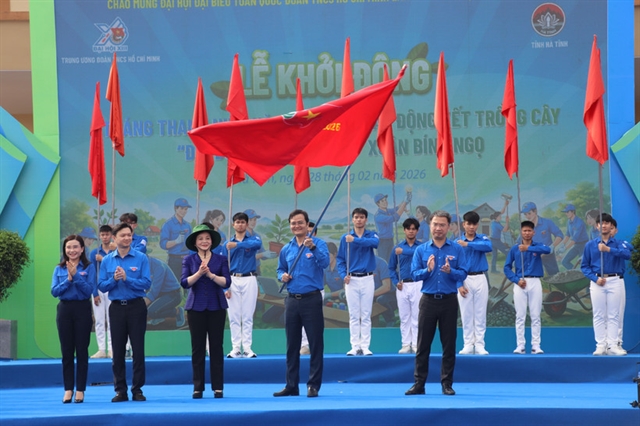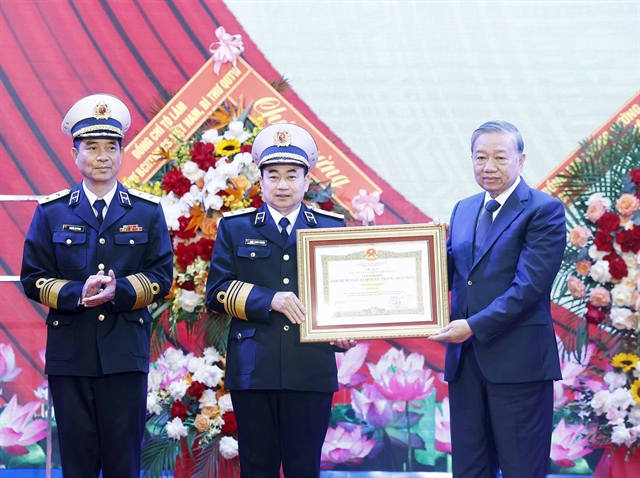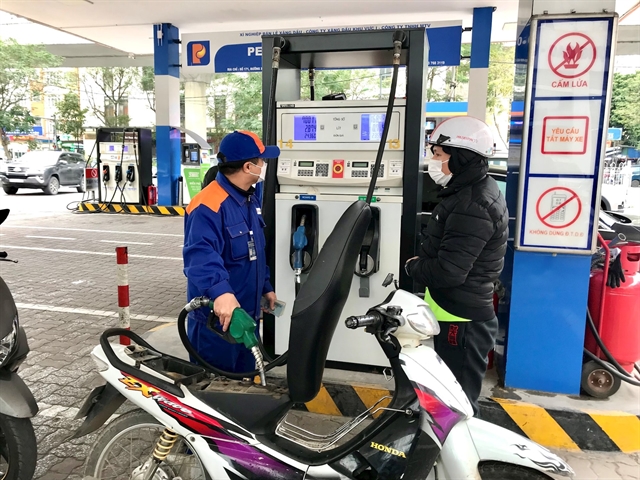 Economy
Economy
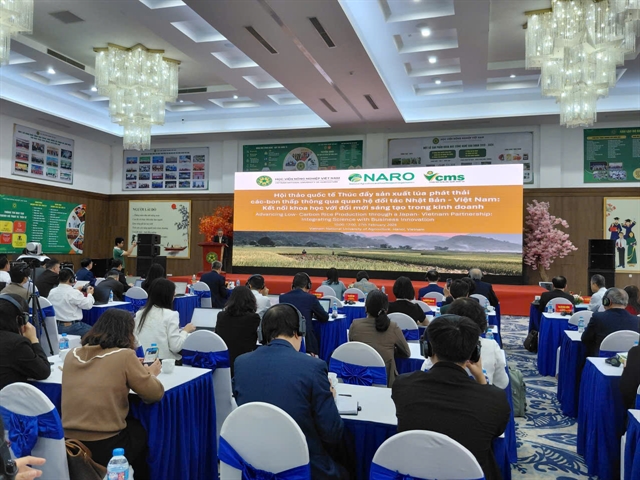
Statistics from the municipal Department of Agriculture and Rural Development in Hà Nội have revealed that the city has to date built 141 chains that link producers and consumers of agro-forestry and fisheries products.
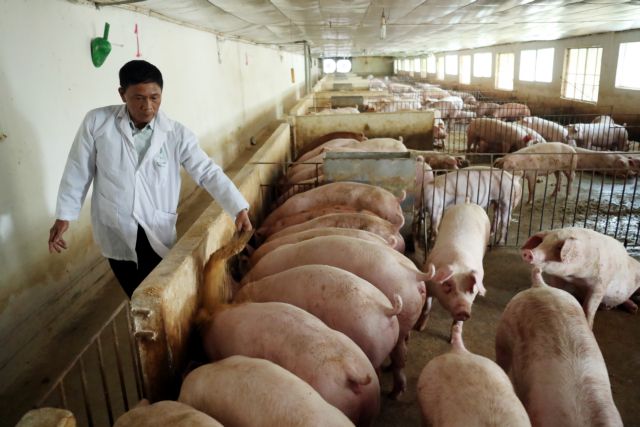
|
| Hoàng Long Livestock Cooperative in Tân Ước Commune of Thanh Oai District supplies 2.2 tonnes of pork and pork products with the brand 'AZ Food Chain' to the market. — VNS Photo |
HÀ NỘI — Statistics from the municipal Department of Agriculture and Rural Development in Hà Nội have revealed that the city has to date built 141 chains that link producers and consumers of agro-forestry and fisheries products.
Products benefiting from these supply chains include A-Z Food Chain, Sơn Tây chicken, Tiên Viên eggs, Vĩnh Nga milk, Quế Dương pomelo, Vân Nam banana, Bối Khê fragrant rice and Bắc Sơn tea.
According to the data, these chains sell 1,379 high quality products to supermarkets and shops in the city. Each day, they provide 60 tonnes of pork, two tonnes of beef, 36 tonnes of poultry, 300,000 eggs, 40 tonnes of processed meat, 80 tonnes of fresh milk and nearly 100 tonnes of vegetables for Hanoians.
Nguyễn Trọng Long, Director of Hoàng Long Livestock Cooperative in Tân Ước Commune of Thanh Oai District, said each day his cooperative supplies 2.2 tonnes of pork and pork products under the brand 'AZ Food Chain' to the market. A closed loop chain from seed, feed, breeding, slaughtering, processing, preservation and distribution helps provide quality products to the market and ensures the safety of consumers, Long said.
Hà Nội has also co-operated with 21 provinces and cities to develop 786 safe food supply chains and 253 of them have been certified under criteria issued by the Ministry of Agriculture and Rural Development.
Trade experts have said that the development of chains between production and consumption would allow better supervision of products at all stages while helping manufacturers raise awareness around safe and responsible production for consumers. This, in turn, increases the value of their goods.
Director of the Hà Nội Department of Agriculture and Rural Development (DARD) Chu Phú Mỹ said the city had sent local officials, production facility managers, and enterprises operating in the agricultural sector to other localities at home and abroad to acquire new skills and become familiar with new farming techniques and technologies as well as bring more quality farm produce to the city.
It had also launched www.check.hanoi.gov.vn which manages the city’s Agro-Forestry-Fishery and Food Traceability System. This helped to manage and control the production facilities and businesses, increasing the accuracy of tracing services, and managing the recall and handling of unsafe products to ensure food safety.
DARD has been tasked with raising public awareness regarding origin tracing via QR codes. Over 20,000 leaflets that provided instructions on how to use QR codes have been distributed to producers, businesses and consumers.
The department is also supporting the Minh Khai wholesale market in Bắc Từ Liêm District and the Southern wholesale market business centre in Hoàng Mai District in providing 3,000 manuals on origin tracing.
The local authorities have organised 53 training classes for officials in a range of districts, wards, and businesses, along with producers and consumers in the city. These classes are used to promote the benefits of using IT during the process of agricultural production and distribution to trace products.
During the 2018-20 period, DARD issued 8,702 QR codes for 635 enterprises in Hà Nội and 238 in other cities and provinces. That has ensured 100 per cent of the products, from 141 production and distribution chains, of agro-forestry-fishery products in Hà Nội, as well as 80.5 per cent of fruit stores, are using QR codes for origin tracing.
In the next four years, the capital city aims to develop 50 chains in the agricultural sector for key products and for all of them to use QR codes for origin tracing. They also aim for 100 per cent of participants in these chains to get improved technical training.
DARD will continue to review the planning of concentrated agricultural production areas and focus on issuing and managing production area codes to ensure they meet export criteria. Meanwhile, it will also try to create favourable conditions for enterprises that will foster technical innovation in processing, packaging and consumption to increase the value of their products.
In a related move, the Ministry of Agriculture and Rural Development has chosen Hà Nội, HCM City and Đà Nẵng to build supply chains of agro-forestry-fisheries products.
Among these three localities, Hà Nội should cooperate with the ministry to build hundreds of supply chains for clean agricultural products for the capital and help increase the value of products for farmers, Nguyễn Như Tiệp, Director of the ministry’s Department of Quality Management of Agriculture, Forestry and Fisheries said. — VNS


